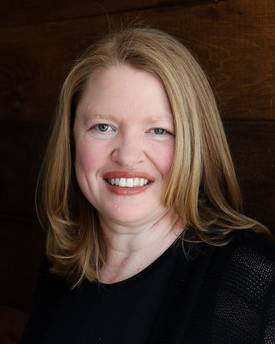How amazing surprise helps children learn

Young children are working every time. Imagine a child who was only one experience with small family dogs of family Shih Tzu. One day, the child meets a large neighbor’s dane. Wow! The idea of the “dog” child’s mind expands quickly to include many shapes and sizes.
The heart of a good education is in the heart of good education: Since summer allen wrote to the “Science of Ares” White Paper: “Ale’s ability to find the accommodation also indicates why it may take unique feelings.”
A quest for knowledge
“One of the things I have found suggests that surprise can help to restore curiosity about the world,” Mental Doctor Craig Anderson told me. Anderson was part of a group that readable How emotion affected teens. “The more wonderful, they wanted to know more, they did it much better at school,” he said.
Sometimes it is described as “a sense of knowledge.” Paul Silvia professor of Psychology at the University of the North Carolina, Greenboro, describes the feelings of information as “the emotional family that promotes reading, exploring, and showing. “These feelings include surprise, interest, and wonderfulness and wonder of” unexpected, sophisticated, and mental challenge, and motivates reading in its wider mind. “
According to Silvia, fear is a powerful educational tool because it moves people to examine the things that stretching out their understanding of the world. He wrote, “When people see beautiful color pictures, black holes, ninishes farm, they often report feelings of surprise and rule themselves.”
When you wondered, you learn
No one in this study was surprised Fred Rogers, which was surprised that were pedagogy. He knew that the curiosity about the brain of the learning children. He also had this fine position to communicate his wonders on the screen – especially his interesting viewers and young viewers.
I reached the gregg Bebb and Ryan Rydzewski, CoAsovurs of When you ask yourself, you’re studying: Lessons That Endure Children Who Are Keeping Children, Wants KnowingHearing more about what they have learned in reading the work of Roger. They told me:
When Fred Rogers sang words, When you wondered, you learnwould not play. In a real sense, he was right. We know about modern science that when we are in a cases of wonder, something changes in the brain. We start pulling all kinds of information. And the curiosity is more sensitive, for it to keep that knowledge. . . That is why some scientists think that curiosity is possible as intelligent when it comes to the success of the children at school.
According to the investigators, it is the impact of “a basic learning and memory.” When children want to know, they are very motivated to learn and be more skillful in the contrast of information. Think about the four-year-old Dinosaur’s name, ten-year-old Dinosaurs Hamlton Lyric. No teacher is assigned to this work. The four-year-old went to the natural resources and was sent by large bones. The ten-year-old climbed their first roller coaster and was attracted to their feelings and physics. The fourteen-year-old meeting had never heard music, or history as this, so they continued listening. Well, curiosity, reading, memory.
Here’s something else to get good: Curiosity has a further effect other Reading. One study at the University of California, Davis, found that when participants were curious about the first information presented to them, they can take relatively downloading information. It is simply in a curious state that helped the brain to memorize the things that were happy. As the writer of Lord, Matthias Gruber, said, “Curiosity may preserve the brain in a situation that we allow and keep any kind of information, such as addiction, such as an addiction, as a vortex addiction.”8
This is educators and parents can use. Engaging With Big Children Questions and helping find out what’s their curiosity in a religiously manner of supporting their learning. Challenge is not to make them love them entire Articles. But what if we increase their curiosity about your curiosity or two? What if we are very careful about what they have caused their interest, what inspired their surprise, and humiliate it?
 Deborah Farmer Kris is the writer of the “Increase they want to stop: How much time science can help our children prosper.” You can follow his place in @ @Sun abusalevoseesesseeseseeseeseseseeseeeseeseseseeseeesekeeseesekeeseeesekeeseeesekeeesekeeekeeekeeekeeekeeekeeekeeekeeekeeekeeekeeekeeekeekeeekeeekeeekeekeeekekekeeke.
Deborah Farmer Kris is the writer of the “Increase they want to stop: How much time science can help our children prosper.” You can follow his place in @ @Sun abusalevoseesesseeseseeseeseseseeseeeseeseseseeseeesekeeseesekeeseeesekeeseeesekeeesekeeekeeekeeekeeekeeekeeekeeekeeekeeekeeekeeekeeekeekeeekeeekeeekeekeeekekekeeke.
Source link



